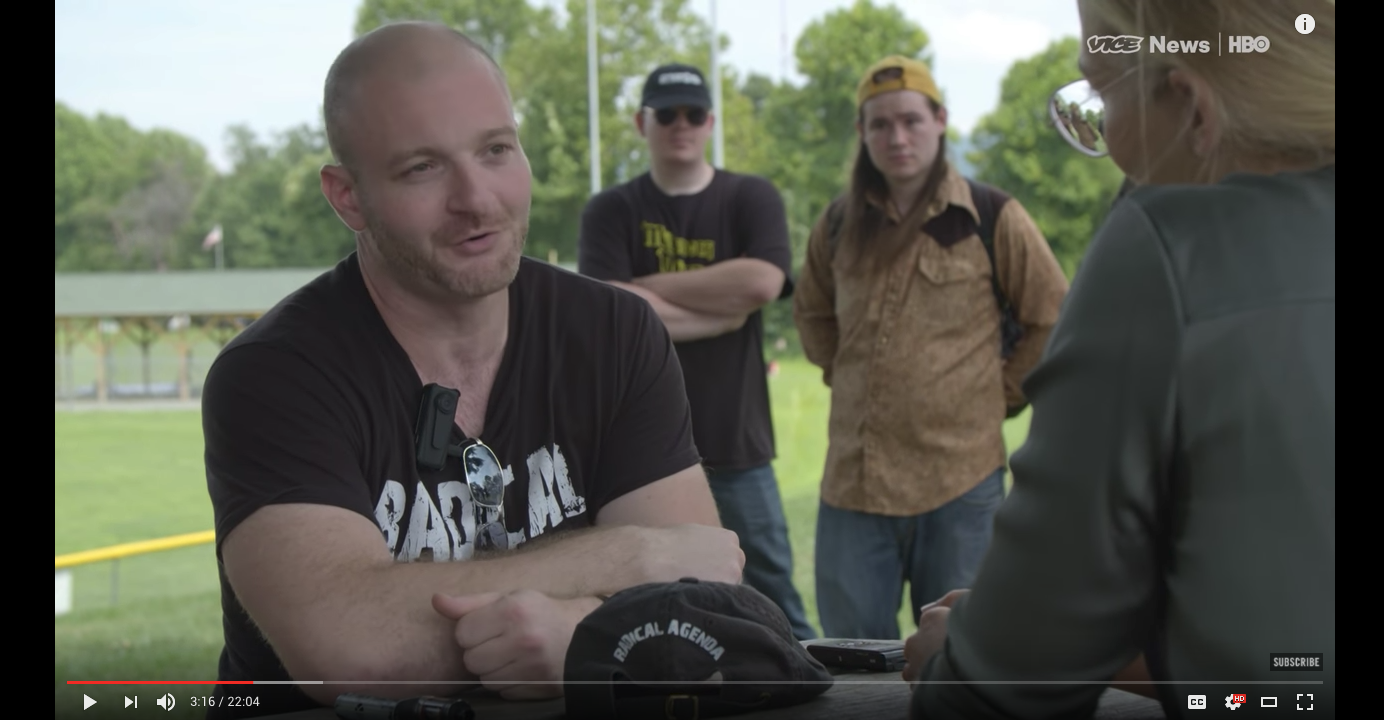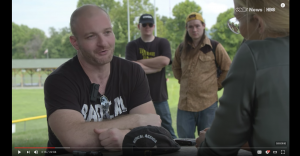The fine line between exposing neo-Nazis and giving them publicity


As a journalist, I understand the appeal of uncovering a juicy story. It’s our duty to inform the public. Sometimes it’s our role to get our hands dirty. We don’t want to merely explain what’s happening, we want to bring our audience in as close as we possibly can. We want to exploit the intimacy of the problem — even if it means throwing ourselves in danger. But sometimes this intimacy is blown up a little too large. And sometimes this exploitation does far more than inform.
Vice Reporter Elle Reeve did an exceptional job in the previous HBO special on the Charlottesville protests last week. Her bravery and dedication towards exposing the psychology behind neo-Nazis and white supremacists was honestly inspirational. Not only did she bring viewers as close as possible — chatting with white supremacists at McInter park, jumping in their car following the Emancipation Park riot, and even meeting with White Nationalist Speaker Christopher Cantwell in a hotel room for him to show off his weapons — she unveiled the once-hidden hatred that was previously only attributed to rednecks or illiterate hicks. She uncovered a reality. She did her job. And she did it surrounded by Nazis armed with AK-47s.
But here’s the problem: she unintentionally signalled to neo-Nazis and white supremacists all over the globe that they’re not alone, therefore potentially inspiring further action amongst them. This can be a very slippery slope for a lot of journalists. Here’s why.
For decades following World War II, the representation of anti-Semitism, white supremacy, or any resurgence of Nazi ideology in the Western world was hidden deep within the shadows, silenced, and locked away. Why? Because those who were still anti-Semitic, racist, or generally intolerant were societally prohibited from articulating or propagating their hatred. Not in the brave new world of post-Holocaust America. Not when survivors and soldiers still quaked and shuddered with the memories of genocide and destruction.
Well, that all started to change in the late 90’s with the birth of the world wide web. Throughout the early 2000’s as internet use became more prevalent, the white supremacist and neo-Nazi communities had essentially been resurrected through the permission of an online presence. This presence came in the form of anonymous chat groups, secret websites, and untraceable threads — opening the doors to freedom of speech that were not restricted by the societal norms of moral enforcement.
So if the internet allowed gatherings such as the Charlottesville protest to happen, media organizations like Vice delivered the message to audiences that the internet hadn’t yet reached. They became a platform. And regardless of intentions, journalistic ethics, or Elle Reeve’s admirable ability to not even blink as bigotry and racism is spewed right at her, Vice is giving campaigns like “Unite the White” everything they require to provoke a greater retaliation. And. That. Is. Fucking. Scary.
Now, giving Nazis exposure isn’t all bad, right? It publicizes the face of the monster. It shines light on the reality and inspires advocates to fight against the impending threats on tolerance and democracy. It shows that these demons of hatred aren’t lost in history or science-fiction movies, and pins a face to the problems that Western society must fight to overcome.
But what’s worse: the monster you know, or the monster you don’t?
Allow me to tell you a story.
Once upon a time there was a dude with a moustache and bad haircut who was really angry that Germany lost the previous World War. He also hated Jews, Blacks, homosexuals and anyone who was different. He wrote a book. He gained publicity. And though many people didn’t agree with him, those who did were inspired to join his fight. He developed a following. He capitalized on his following and became front cover news. Being front-cover-news allowed him to speak as a public figure. He spoke, and he spoke loud. He spoke proud! Though radical and as many would dub “eccentric,” (even then) his speeches inspired a movement. He struck a chord. And you know how this story ends.
People are batshit crazy. That’s just how the world is. But sometimes batshit craziness is provoked by the revelation and validation of batshit craziness. And sometimes that reveal needs to be diminished.
But as a journalist, what can you do? Does journalism expose the enemy, or make the enemy stronger?
I think it’s a matter of finding the line between informing and exploiting. Vice told the story of the Charlottesville protest and got multiple angles. They didn’t just show one side. They uncovered the emotion, chaos, and consequences of the whole conundrum. And that’s great. But they’ve also been publishing interviews with Neo-Nazis just for the sake of showing the monster is out of the closet. They and many media organizations are drilling in the same point: they’re real, and they’re coming for you!
But now that we see the monster is real, we need to stop giving it exactly what it wants. The old cliché that no publicity is bad publicity has never been so real. We’re throwing a microphone in their faces with the intention of showing how horrific and wrong they are, not considering that people out there might be secretly nodding their heads to the voices we’re amplifying.
I’m not saying stop informing. I’m saying stop exploiting what’s already been revealed.
Showing a neo-Nazi mother holding her babies and explaining that she thinks there should be another genocide is obviously horrifying, but is it good journalism?

